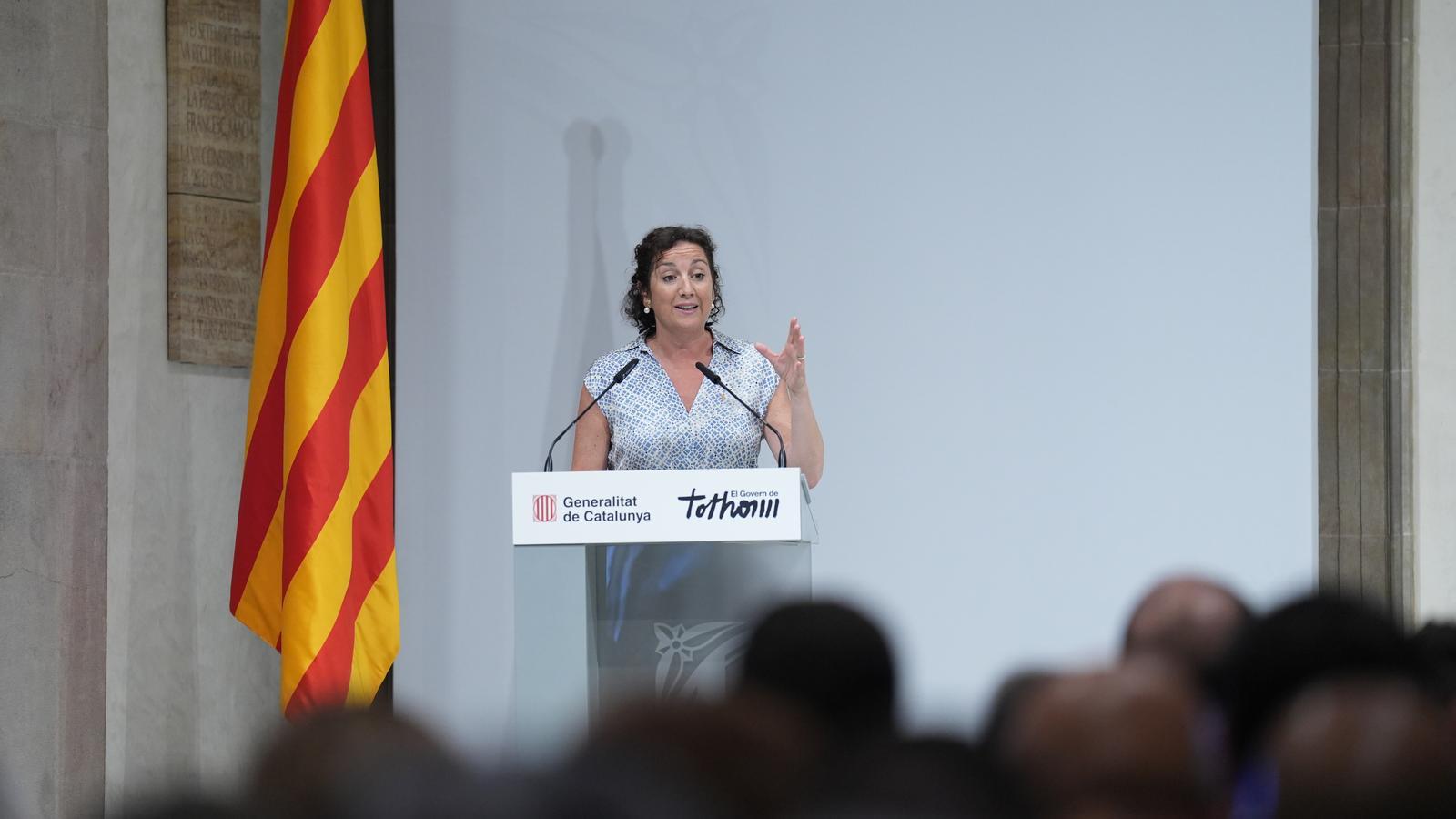Big banks are once again financing the Generalitat for the first time in 13 years.
CaixaBank, Sabadell, BBVA, and Santander are among the banks signing loans to reduce the 2023 FLA by 3.5 billion.


BarcelonaObjective achieved. Major banks are once again financing the Catalan government thirteen years later. CaixaBank, Banco Sabadell, BBVA, and Santander are four of the six financial institutions that have enabled the government to successfully complete the partial refinancing process of the regional liquidity fund (FLA) for 2023 at a lower interest rate than the current one, amounting to €3.5 billion. As a result of this operation, the Catalan government will save €127.6 million in interest over eleven years, until 2035, according to calculations by the Ministry of Economy. This is the first operation with the private financial sector to finance long-term debt since 2012, the year in which the markets for the regional governments were closed and the instruments to provide them with liquidity and resources to pay suppliers were created. BBVA has signed an agreement to refinance €1 billion, and Santander, around €700 million. CaixaBank and Sabadell have not disclosed the amounts provided.
After announcing its intention to turn to the financial sector to reduce the cost of its liabilities, between May and July, the Generalitat (Catalan Government) received offers from financial institutions for amounts higher than it was requesting, according to the Ministry of Economy. After analyzing the offers, it formalized a total of seven loans with six Spanish entities, which have served to refinance up to €3.5 billion of the 2023 FLA.
Last May, the Council of Ministers and the Executive Council authorized the Generalitat (Catalan Government) to formalize long-term borrowing operations. The formalization of these new operations allows, on the one hand, to diversify the Generalitat's sources of financing and, on the other, to take advantage of the drop in interest rates compared to the 2023 highs and thus obtain financial savings.
The average interest rate on new loans issued is 2.951%, representing a 54.6 basis point reduction in borrowing costs compared to the 2023 FLA loan, which was 3.497%. The lower interest rate will translate into financial savings for the Catalan government in interest payments totaling €127.6 million (€115.9 million) over the next 11 fiscal years.
Creditor State
The savings vary depending on the year. This year they will be €3.4 million, the following three years €19.1 million each, followed by €16.7 million in 2029, €14.3 million in 2030, €11.9 million in 2031, €9.6 million in 2032, €7.2 million in 2033, €4.8 million in 2034, and €2.3 million in 2034. In December, the Generalitat's total debt was €89.7 billion, of which 87.5% is owed to the State.
The Catalan government, which still does not finance itself in the markets as it did until 2012, but aims to do so, plans to fully settle its debt with the State through the FLA and other instruments by 2036. Previously, it had even issued good debts intended for individuals, such as those issued by the State.
The regulations allow the autonomous communities adhering to the FLA to borrow outside of this mechanism, provided that it is for refinancing purposes (i.e., no new liabilities are generated) and this serves to reduce the cost of debt, as is the case here.
The Ministry of Economy, headed by Alícia Romero, defended resorting to refinancing by private banks because the current context of lower interest rates and "the good financial health of the Generalitat" allowed them to once again ask for credit from the private sector and obtain better conditions.
The debt crisis in Europe caused markets to close to the autonomous communities seeking financing. In this context, different instruments were born through which the State facilitated territorial liquidity, which culminated in the FLA. This year, the Generalitat (Catalan Government) requested €8.481 billion from the FLA, of which €8.048 billion is to cover debt maturities, €308 billion to meet the deficit target of 0.1% of gross domestic product (GDP), and €125 billion for other purposes.
The partial forgiveness of the FLA is expected to be approved by next week's Council of Ministers, which in the case of Catalonia amounts to €17.104 billion. This figure corresponds to 19.9% of the total debt owed by the Catalan government to the Spanish government. For all regions, it amounts to €83.2 billion. In any case, the measure, which is part of the conditions agreed upon with ERC for Pedro Sánchez's investiture, must be ratified by Congress, where it is, in principle, opposed by at least the PP and Vox.
